Premium Only Content
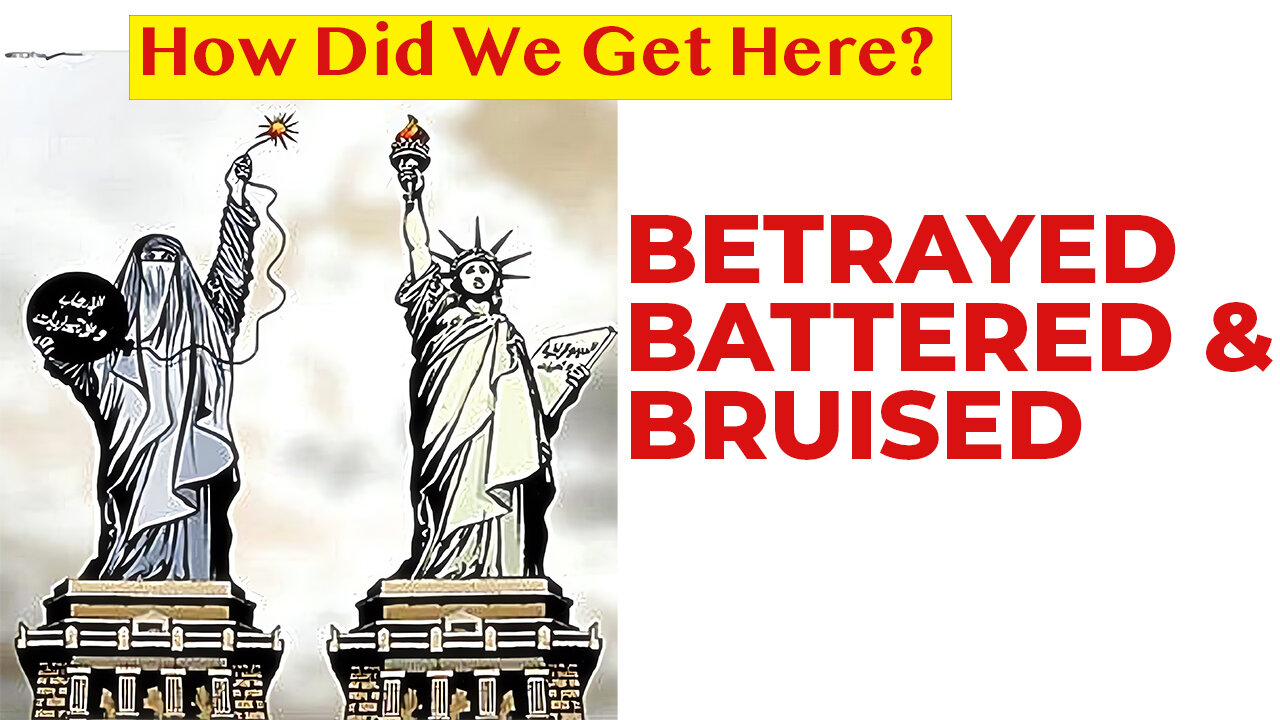
Democracy And The Birth Of Uncivilized 'Left': A LIE You Have Been Sold
We often pride ourselves on being champions of democracy and free speech, but when confronted with uncomfortable truths, we tend to feel threatened, defensive, or even humiliated. In some cases, we may lash out violently against those who bring us the truth. This contradiction lies at the heart of democratic societies: while they promote equality and freedom of expression, they also struggle to integrate diverse views without suppressing them. This tension gave rise to the idea of "political correctness," which, though rooted in inclusivity, often results in silencing certain voices. Ironically, in trying to create unity, democracy sometimes undermines itself by silencing dissent, contradicting its very promise of equal rights.
Consider, for example, groups like "Queers for Palestine," whose support for a terrorist organization like Hamas seems paradoxical. Hamas, notorious for its homophobic policies, actively oppresses the LGBTQ+ community. Yet in a democratic society, such groups have the freedom to express support for causes that seemingly go against their own interests. This illustrates one of democracy’s peculiarities: it protects voices that support agendas that, in theory, would eliminate the very freedoms democracy upholds.
This extends to more troubling areas like hate speech. In the name of free speech, people often engage in marches displaying hate symbols or chanting slogans that call for violence. These expressions are defended under the umbrella of individual rights, yet they incite fear and hostility. Take, for instance, the pro-Palestinian marches held globally, where chants sometimes cross into xenophobic or anti-Semitic rhetoric. Jewish communities, living in the same democratic societies that host these marches, often feel alienated and threatened by the slogans aimed at them. Democracy’s commitment to free speech, in these instances, can become a double-edged sword, allowing space for hateful ideologies to flourish alongside more reasonable discourse.
Another issue lies in democracy’s inherent fragmentation. Unlike more authoritarian regimes, which can impose a single national identity, democracy thrives on pluralism. However, this pluralism often results in political opposition that can undermine national interests. In some cases, elements of the so-called "deep state"—shadowy networks of bureaucrats or power players—align with anti-national forces, further eroding cohesion. The minority vote bank politics while waging war in other countries to serve the military industrial complex is just one of many examples. Instead of creating a unified society, democracy can sometimes invite hostile ideologies into the political fold, weakening the nation from within.
Furthermore, democracy is vulnerable to human nature, specifically our tendency toward self-interest. Decisions made by the majority in a democratic system can have lasting consequences, especially when that majority is driven by prejudice or bigotry. When the majority becomes narrow-minded or intolerant, they can use their electoral power to dismantle the very democratic principles that put them in power. Consider the example of Gaza, where the people voted Hamas—a terrorist organization—into power. What followed was not the flourishing of democracy, but its erosion. By empowering a group rooted in extremist views, the people effectively dismantled their own democratic rights.
We see a similar pattern in Afghanistan. Despite efforts by the West to impose democracy, the deeply ingrained cultural and religious bigotry led many to reject the values of liberal democracy. The majority, given the freedom to choose, opted to suppress those freedoms, voting in regimes that curtailed the rights of others. The result is a tragic irony: democracy can be used as a tool to destroy itself, especially when the majority is influenced by extremist ideologies.
In essence, democracy is a delicate balancing act. It strives to protect freedom and equal representation, yet is often vulnerable to the very forces it aims to keep in check. When selfish interests, bigotry, or extremist ideologies take hold, democracy can fall victim to its own ideals, allowing the majority to suppress the minority and undermine the freedoms it seeks to guarantee. The challenge for any democratic society is not just in protecting free speech, but in navigating the complex and often conflicting interests that come with it, ensuring that the rights of one group do not lead to the oppression of others.
#democracy #freespeech #politicalcorrectness #deepstate #equality #paradox #hatespeech #extremistideologies #groupdynamics #socialcohesion #majorityrule #minorityrights #Gaza #Hamas #Afghanistan #selfinterest #bigotry #societalfragmentation #inclusion #freedomofexpression #politicalopposition #nationalidentity
-
 1:50:51
1:50:51
Adam Carolla
5 days ago $2.61 earnedDave Portnoy RAILS against entitled, lazy Gen-Z Workforce + Comedian Dusty Slay | Adam Carolla Show
5.04K19 -
 15:00
15:00
Mrgunsngear
13 hours ago $2.23 earnedDan Wesson DWX: 2011 & CZ-75's Baby
7.81K10 -
 16:07
16:07
SKAP ATTACK
11 hours ago $0.75 earnedNuggets STEAL Game 1 Behind Jokic Mastery
10.3K2 -
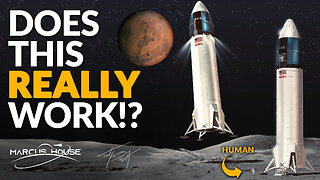 22:16
22:16
marcushouse
14 hours ago $0.83 earnedFinally, the Starship Info We’ve Been Waiting For… And What We Can Do With It Is Wild!
5.61K10 -
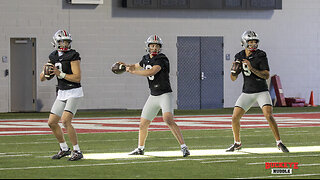 33:32
33:32
Ohio State Football and Recruiting at Buckeye Huddle
11 hours agoOhio State Football: What Position is the Biggest Question Mark for the Buckeyes?
5.81K1 -
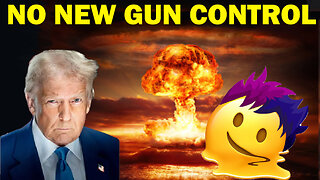 9:30
9:30
VSOGunChannel
16 hours ago $0.50 earnedAdmin Actually Defending the 2nd Amendment?
5.04K7 -
 44:55
44:55
BEK TV
10 hours agoTARIFFS, TECH TYRANNY, AND PROPHECY: CLAY CLARK EXPOSES THE GLOBAL RESET NO ONE IS TALKING ABOUT
5.3K -
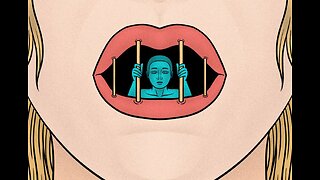 56:09
56:09
TheCommonSenseShow
5 days agoA NEW CONSERVIATIVE MEDIA WILL SOON BE THE LARGEST OUTLET IN THE WORLD
6.29K2 -
 57:50
57:50
Trumpet Daily
1 day ago $3.67 earnedThe Deadly Disease of Forgetting History - Trumpet Daily | Apr. 18, 2025
8.09K4 -
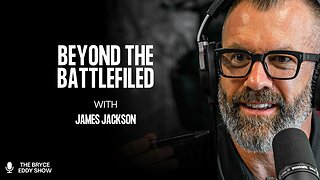 23:12
23:12
The Bryce Eddy Show
2 days ago $0.25 earnedJames Jackson: Beyond the Battlefield
6.44K1